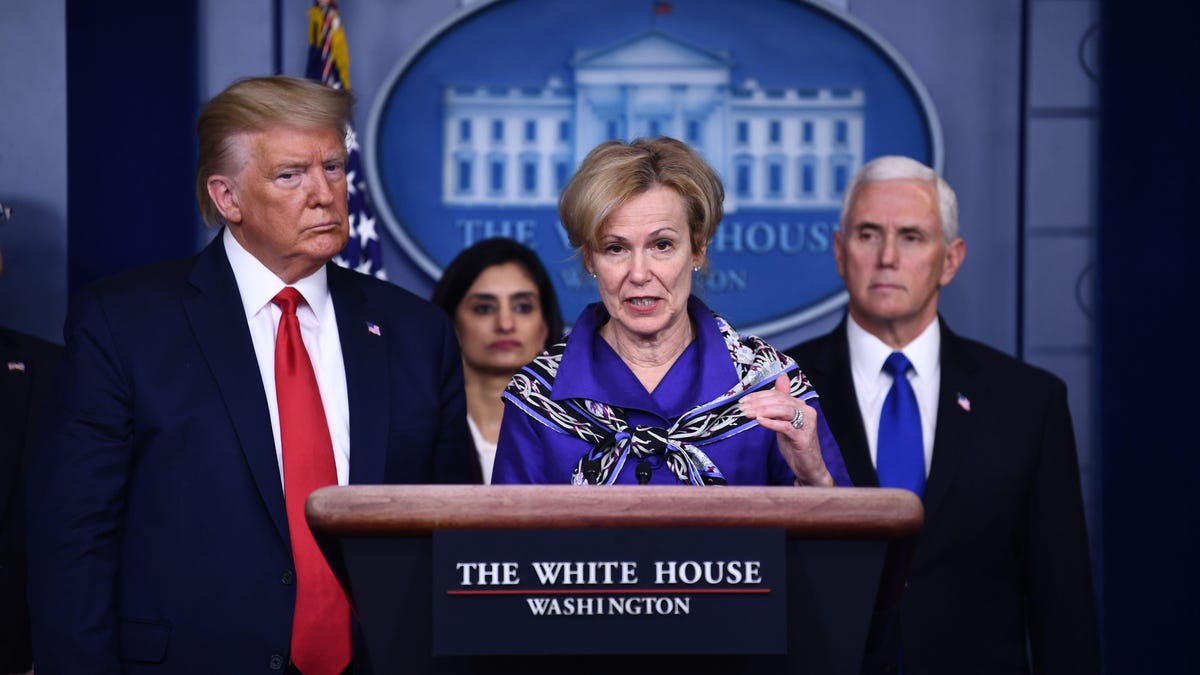White House: Millennials can get coronavirus too, 'we need them to be healthy'
President Trump's coronavirus task force reiterates that young adults are the key to stopping the spread of a pandemic.

Dr. Deborah Birx, White House coronavirus task force coordinator, appealed to millennials during a March 18 daily briefing on the coronavirus.
At Wednesday morning's press briefing, Dr. Deborah Birx, the White House's coronavirus response coordinator, reiterated her plea to millennials to avoid socializing so they can help stop the spread of the the virus that causes the illness known as COVID-19.
"There may be a disproportional number of infections among that group," she said, referring to increasing cases of young adults being hospitalized with COVID-19 in France and Italy. "So, again, I'm going to call on that generation ... we cannot have these large gatherings that continue to occur throughout the country for people who are off work."
According to data from Italian media reports, 11 percent of coronavirus cases in the country were in people under 40, as of last week.
On Monday, President Trump and the White House Coronavirus Task Force announced new guidelines for slowing the spread of the virus. During that prior briefing, Birx called on millennials to take the lead, calling young adults "the core group that will stop this virus."
The new guidelines call for all Americans to avoid social gatherings of more than 10 people. This came less than 24 hours after the Centers for Disease Control and Prevention suggested gatherings of more than 50 people should be avoided for two months.
Coronavirus updates
Birx reiterated the guideline for the generation that generally includes people in their twenties and thirties, asking millennials to keep socializing to less then 10 people, both in public and in their homes.
"They're the ones that are out and about... they're the ones that are most likely to be asymptomatic," Birx said. "There's more millenials now than any other cohort at this moment and they can help us."
Newscasts and social media have painted a pretty clear picture of many millennials going out and partaking in nightlife across the country over the past few days as calls to practice social distancing have amplified.
A debate has erupted on social media with some labeling the calls to stay home an overreaction and others shaming those who refuse to reduce interpersonal contact. Viral hashtags like "#staythefhome have cropped up to help make the point.
Wow! We have just reached 2 million people on the #StayTheFuckHome website, which is now also available in 17 languages thanks to our awesome community. You rock! Please keep on sharing and RT!https://t.co/xM7p0lKfCE pic.twitter.com/sW86rVVllo
— #StayTheFuckHome (@stfhofficial) March 15, 2020
For the record, almost all public health officials agree that staying the eff home is the smart thing to do, so as to reduce the transmission of the virus and prevent it from reaching the elderly, people with compromised immune systems and other vulnerable populations.

